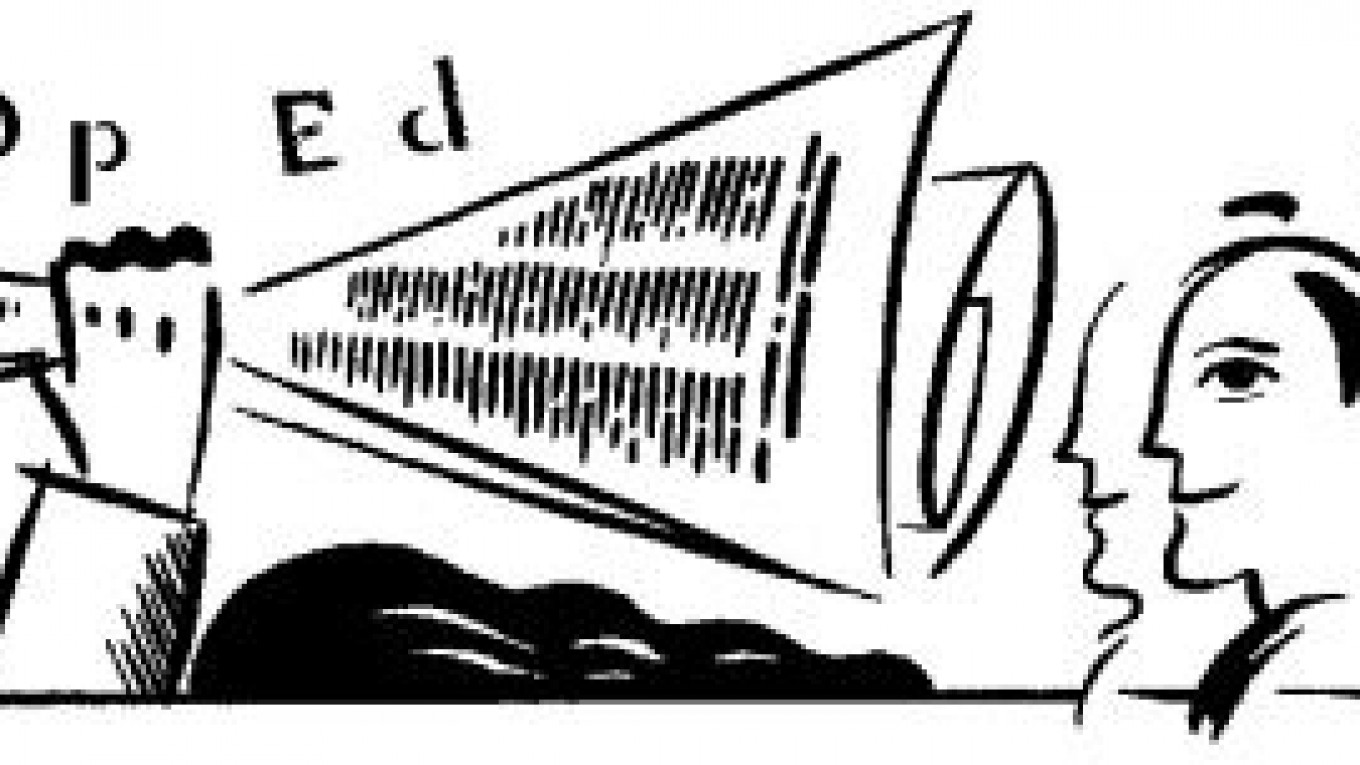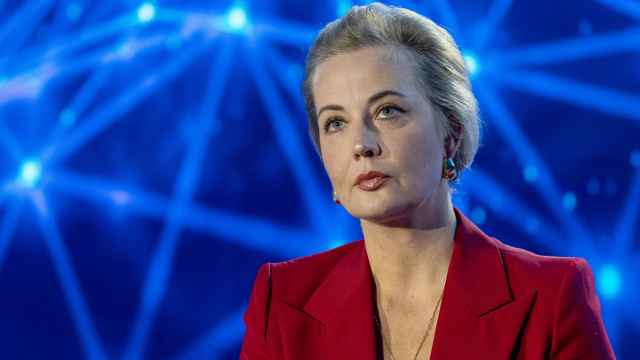Much has been written about those perilous 13 days in October 1962 when the world was closer to nuclear extinction than it has ever been. Particularly in the U.S., the peaceful resolution of that conflict is credited almost exclusively to the courage and resolution of President John F. Kennedy, and there is no question that had he not had that courage and resolution, I almost certainly would not be here to write these words. There's an important piece of that story that's missing, however, and as it is no longer classified information, it should be told.
My personal involvement with the events of those days began in late 1961 when I was temporarily assigned as a courier for the U.S. Embassy in Moscow. My own government used me as a bargaining chip to free a U.S. diplomat who was being held by the KGB on suspicion of spying. My background in mathematics and nuclear physics and possible knowledge of what nuclear information the U.S. was seeking from the Soviet Union made me a promising subject for interrogation. The swap was made. The news rippled through the Soviet military community.
To be sure, Soviet leader Nikita Khrushchev had his faults, but stupidity was definitely not among them. The U.S. had installed nuclear-tipped Jupiter missiles pointed at Russia at military bases in Turkey and Italy, and the possibility of having a similar capability based on an island only 145 kilometers off the coast of Florida escaped neither Khrushchev nor his top military advisers. Top-secret planning began in the autumn of 1961.
Harsh interrogation was not unknown to the KGB, and I was nearly dead when two high-ranking Soviet generals risked their careers, and possibly their lives, by extracting me clandestinely from the depths of Lubyanka. These two honorable men were Russian patriots of the highest order. As members of Khrushchev's top military advisory group, they were strongly opposed to the more hawkish members of the group, who were quite prepared to risk nuclear confrontation and even war if need be. Khrushchev's plan for missile installation in Cuba was probably the most highly guarded secret in the Soviet Union at the time. Not even Cuban leader Fidel Castro had been brought on board, although Khrushchev was confident that he could be persuaded.
If the plan could be kept secret until the missiles were fully installed and operational, Kennedy would be presented with a fait accompli, against which there would be no alternatives other than invasion of Cuba and the resulting nuclear holocaust or living with the fact that the Soviets could destroy the United States whenever they wished. The Soviet generals desperately wanted to give the U.S. a warning so that talks could ensue, but they had no way of getting information of any kind to the U.S. president. They decided that dumping a nearly dead U.S. citizen possessing a diplomatic passport on the doorstep of the U.S. Embassy in Finland would lend some credibility to the story that they had given me to deliver to Kennedy. I was of particular value because I had no reason to trust either the Soviets or my own country. I had no reason to lie to anybody.
In 1962, the Cuban economy was in a deep decline because of the U.S. economic blockade, and in May, Khrushchev made his proposal to Castro. It was a combination of trade agreements, military support, security guarantees, technology transfers and the lifeline that the politically drowning Castro would find essential to his survival. He accepted, and the details were worked out in June.
In the U.S., I was finally able to get a meeting with the highly skeptical Kennedy. There was no proof that the information I had conveyed had any basis in reality, but it made just enough sense that Kennedy agreed that if the generals made their promised contact with me to say the Soviet plan was going operational, he definitely wanted to be informed. In early October, I received that contact. Bad weather delayed the overflight of Cuba by a U-2 reconnaissance airplane until Oct. 15, 1962. The reconnaissance confirmed the beginnings of the Soviet construction of missile bases. Although the U.S. public was not made aware of such construction until Oct. 22, back-channel negotiation with Khrushchev started the very next day. Those negotiations went through me, since I had been appointed special assistant to Kennedy, and Anatoly Dobrynin, the Soviet ambassador to the U.S.
I had the trust of both sides. Kennedy had little hope at the outset that he would find Khrushchev a reasonable interlocutor, but he slowly realized that Khrushchev was just as concerned about a nuclear war as he was and was honestly and very courageously trying to avert it. I know for a fact that U.S. Defense Secretary Robert McNamara was strongly urging a "surgical strike" on Cuba. While it took great courage for Kennedy to reject the advice of McNamara, it was even harder for him to reject the same advice coming from his own brother, Robert. President Kennedy stood alone.
For his part, Khrushchev also had the courage to reject the advice of his top military advisers when he ordered Soviet ships approaching the U.S. naval blockade of Cuba not to penetrate the blockade. Possibly the most courageous thing he did was to accept Kennedy's request to keep secret Kennedy's agreement to pull the Jupiter missiles out of Italy and Turkey. Things were happening so quickly that there had been no time to inform and explain to our allies why the missiles were going to be removed. Meanwhile, Kennedy was gravely concerned that an unexplained, abrupt pullout would make them feel abandoned by the U.S.
To most Americans, it appeared that it was Khrushchev who had blinked first in this stare-down between Kennedy and Khrushchev. The Soviet leader knew how this would be perceived but accepted it as a reasonable price to pay for peace. In his memoirs, Khrushchev wrote, "Any fool can start a war, and once he's done so, even the wisest of men are helpless to stop it, especially if it's a nuclear war." Both men were giants, heroes and leaders of the highest order. While memories of the charismatic Kennedy still linger, it should be pointed out that for his actions during that crisis, Khrushchev equally deserves the highest possible praise. His heroism has gone unheralded. He is a forgotten hero.
William Bertram MacFarland was special assistant to President John F. Kennedy and is author of "Back Channel: The Kennedy Years."
Related articles:
A Message from The Moscow Times:
Dear readers,
We are facing unprecedented challenges. Russia's Prosecutor General's Office has designated The Moscow Times as an "undesirable" organization, criminalizing our work and putting our staff at risk of prosecution. This follows our earlier unjust labeling as a "foreign agent."
These actions are direct attempts to silence independent journalism in Russia. The authorities claim our work "discredits the decisions of the Russian leadership." We see things differently: we strive to provide accurate, unbiased reporting on Russia.
We, the journalists of The Moscow Times, refuse to be silenced. But to continue our work, we need your help.
Your support, no matter how small, makes a world of difference. If you can, please support us monthly starting from just $2. It's quick to set up, and every contribution makes a significant impact.
By supporting The Moscow Times, you're defending open, independent journalism in the face of repression. Thank you for standing with us.
Remind me later.






